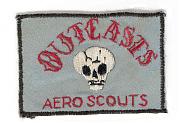The National Institute of Mental Health defines PTSD as "an anxiety disorder that can develop after exposure to one or more terrifying events in which grave physical harm occurred or was threatened". What I would like to find out is the relationship between culture, the nature of modern war, and PTSD, if there is a significant relationship at all.
(1) Is PTSD prevalent in other cultures/countries? Is it a major issue primarily in industrialized countries, or is it present in all cultures engaged in conflict? Russia has a serious problem managing PTSD among combat veterans returning from Chechnya, but this would seem to indicate that PTSD is a consequence of industrialized war.
(2) Are there historical references to PTSD in history prior to modern warfare? How was it perceived and managed? Was it particular to certain cultures or present throughout the history of war? The Iliad makes a reference to what appears to be PTSD -- Ajax loses a duel, comes under a "spell" from Athena, slaughters a herd of sheep thinking they are the enemy, and then kills himself. Is this an ancient reference to PTSD? If so, it would seem, so far, that PTSD is a product of Western culture.
(3) If PTSD is particular to a certain cultural arch-type or form of warfare, is it therefore a product of social construction?
(4) If it's a social construct, would PTSD treatment be more effective by addressing the underlying cultural variables rather than specific individuals (not to say, of course, that those individuals suffering from it should be refused treatment on a case-by-case basis).









 ). In a certain tribe living nowadays in South Africa and Tanzania, the manhood ritual involved circumcision - usually with a rather dull iron knife at the age of 12 or so. This was followed with a requirement hat the "candidate" stand immersed in a cold stream for about an hour or so. No, to my mind, having parts of your anatomy slowly sawed off and then being put into cold water for an hour or so will, in all probability, induce a major system shock. Someone who had a genetic predisposition to PTSD, i.e. a likelihood of pain bypassing their neo-cortex, would probably die as a result of this ritual. So, in his culture, PTSD would not be as prevalent as in other cultures that don't select against it.
). In a certain tribe living nowadays in South Africa and Tanzania, the manhood ritual involved circumcision - usually with a rather dull iron knife at the age of 12 or so. This was followed with a requirement hat the "candidate" stand immersed in a cold stream for about an hour or so. No, to my mind, having parts of your anatomy slowly sawed off and then being put into cold water for an hour or so will, in all probability, induce a major system shock. Someone who had a genetic predisposition to PTSD, i.e. a likelihood of pain bypassing their neo-cortex, would probably die as a result of this ritual. So, in his culture, PTSD would not be as prevalent as in other cultures that don't select against it.
Bookmarks